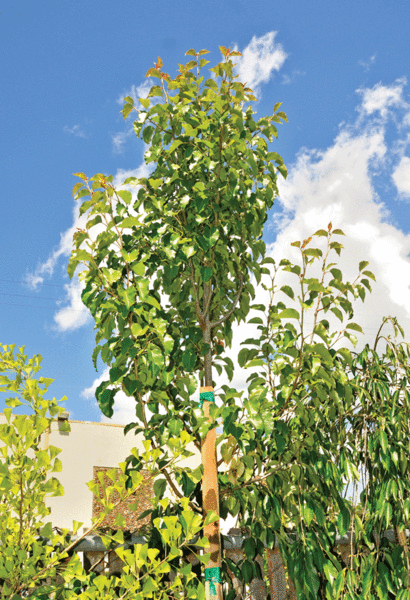
With last week’s arrival of hot, summerlike weather, the time has come to think about how to stay cool during the summer months. But, as is often the case, frequent usage of devices such as fans and air conditioning systems draws massive amounts of energy — which is as harmful to the environment as it is to the bank account.
According to Scotts Valley Community Development Director and Deputy City Manager Corrie Kates, the city of Scotts Valley recently became the first city in Santa Cruz County to participate in the Renovate America and the HERO programs, which help residents find a way to finance energy efficient projects on their properties.
HERO is an acronym that stands for: Home Energy Renovation Opportunity. HERO is the No. 1 energy efficiency financing program in the United States. As a partnership with local governments, HERO makes energy-efficient, water-efficient and renewable-energy products more affordable for homeowners.
John Law, Director of Municipal Development for Renovate America, the company which created HERO, said they offer Scotts Valley residents “substantial energy savings, utility bill reductions, and green house gas reductions.”
“HERO has been adopted by 138 communities in California and we funded over 11,000 improvements for residential properties for over $210 million dollars,” he said. “That equates to saving property owners $408 million dollars over the lifetime of the home project we financed, while reducing carbon emissions over 25,000 tons annually in California.”
Renovation America operates under state legislation called Property Assessed Clean Energy (PACE).
“It’s proven to be a powerful source of economic stimulation, like job creation, and that’s why so many communities are choosing us,” Law said.
The Santa Cruz County Environmental Commission has moved forward with a recommendation to the Board of Supervisors to adopt the HERO program. The vote is targeted for next week.
Ecology Action’s Darren Nix recommends checking out Energy Upgrade California (www.energyupgrade.org) which provides rebates ranging from $2,500 to $4,000 “to perform a whole suite of measures that improves energy conservation on your home.”
One of the best cost savings you can make is simple — upgrade to high-efficiency lighting, he says.
“There are a lot of new products like LED lighting,” Nix said. “It is really becoming a cost-effective, long-term replacement option for traditional incandescent and florescent lighting.”
Small and medium size businesses can upgrade to high-efficiency lighting, he said, with the support of www.rightlights.org, an Ecology Action program funded by California utility customers and administered by PG&E under the auspices of the California Public Utilities Commission.
Sometimes, energy conservation can come in small efforts like planting a deciduous tree on the south or west side of your home — in the summer the leaves provide cooling shade and in the winter the leafless tree lets the sunshine in.
Contractor Stu Philips of www.californianaturecenter.com, who specializes in eco-friendly home construction, suggests utilizing summer shading strategies — like exterior shades, wooden trellises planted with deciduous plants, and eaves.
An air conditioner is the biggest drain in the summer on energy costs, according to PG&E. Late spring and early summer is the time to clean condenser coils, make sure that it is charged appropriately, and the ducts are sealed.
PG&E recommends that homeowners set a programmable thermostat for 78 degrees, so that the unit is not running when no one is there. Any degree cooler than that accounts for 3 percent more energy use.
Check your attic for openings, even your attic door needs to be sealed properly, and insulation. Insulation in our area should be R25 to R38.
If you are ready to take a major step in energy conservation, many programs are available to support you.
The San Lorenzo Valley Water District’s water conservation credit program offers $100 for the installation of a high-efficiency clothes washer, encouraging customers to save both water and money.
“Absolutely, the most important reason to conserve energy, however, is to reduce the use of fossil and nuclear fuels, and reduce or eliminate the need for new ‘dirty’ power plants that burn fossil fuels,” said Tai Stills of the Valley Women’s Club Environmental Committee. “Fossil fuels contribute greatly to air and water pollution, and are a major source of greenhouse gases, which are causing climate change that is already wreaking havoc in many areas of the planet.”












